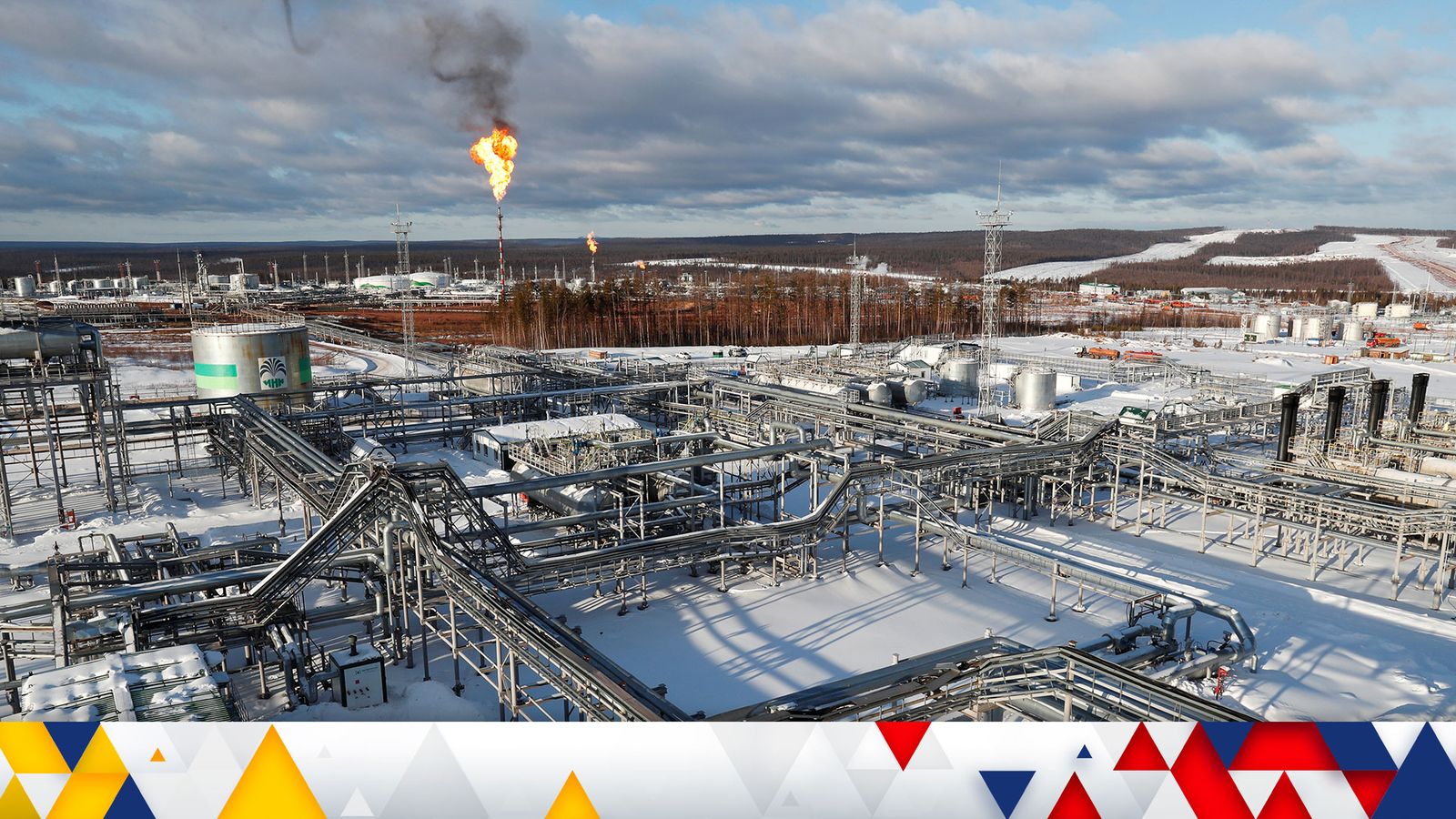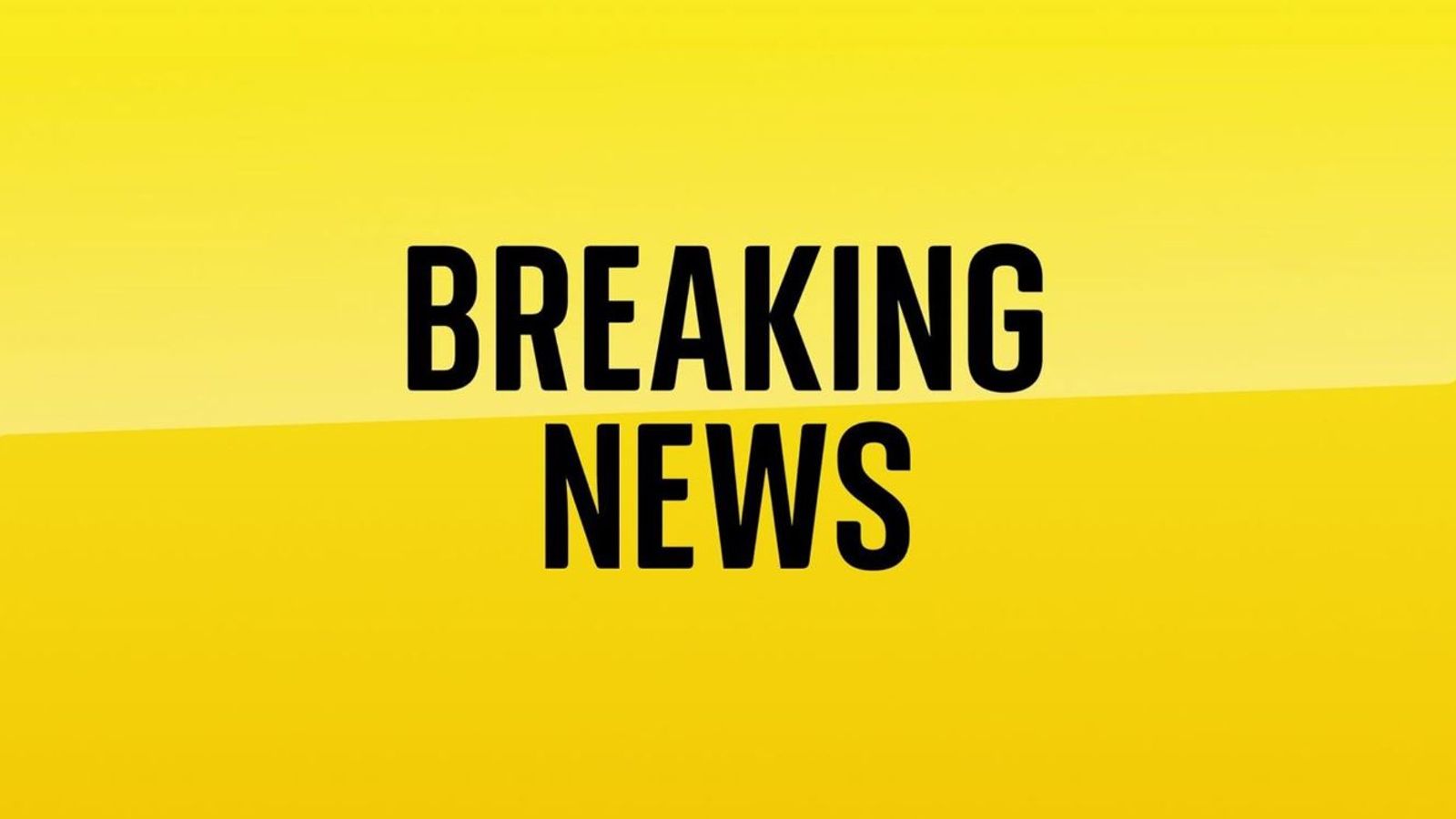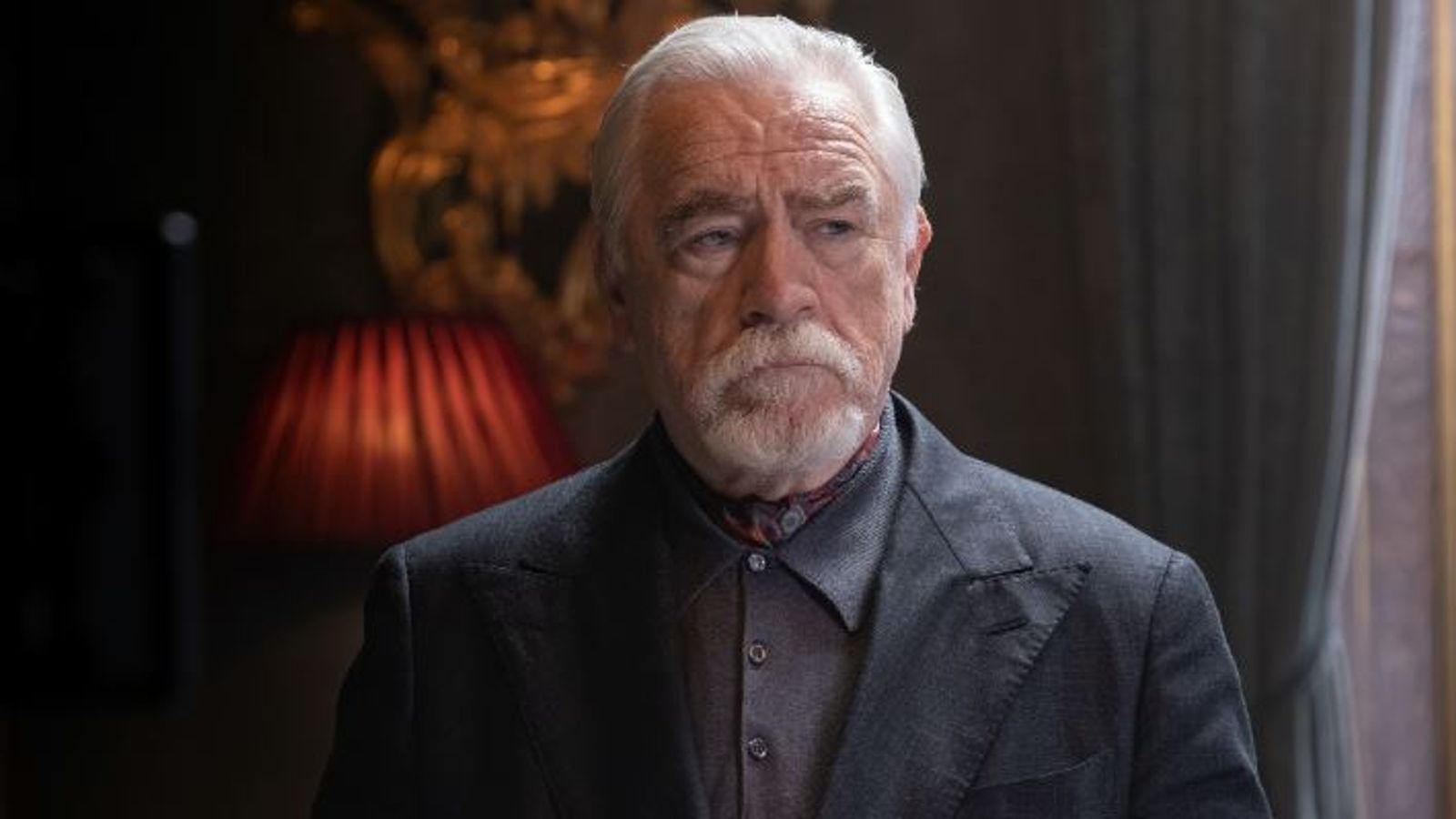The UK plans to ban Russian oil imports by the end of the year in a further tightening of sanctions after Vladimir Putin’s invasion of Ukraine.
The prime minister is expected to make the announcement today.
It will come around the same time as the US is also expected to cut off Russia from the trade in crude.
The moves follow pleas by Ukraine’s leader Volodymyr Zelenskyy to stop the sales – which have so far been allowed to continue channelling money to Moscow even as other restrictions increase.
Ukraine war latest – live updates as Russia accused of breaching humanitarian ceasefire
Oil prices, already at multi-year highs, climbed back above $132 a barrel as details of the latest sanctions emerged.
The White House said President Biden was set to announce “actions to continue to hold Russia accountable for its unprovoked and unjustified war on Ukraine”.
Ukraine war: Shell turns its back on all Russian oil and gas and says ‘sorry’ for purchases last week
Ukraine war: Why nickel’s spectacular surge could put the brakes on carmakers’ electric plans
McDonald’s, KFC and Coca-Cola face boycott threats for not halting operations in Russia amid Ukraine war
Crude and refined products from Russia accounted for about 8% of US liquid fuel imports last year, according to the Energy Information Administration, and a ban is likely to push up petrol pump prices, add to America’s cost of living crisis – with inflation currently running at a four-decade high.
The UK takes 11% of its supplies from Russia. Its plan will give it nine months to adjust to buy stocks from the US and Middle East.
America, which had previously floated the idea of an oil ban over the weekend, is expected to act more swiftly than its allies – with European nations more dependent than the US on Russian energy supplies.
The Kremlin has warned of “catastrophic” conseqences for consumers if the US and its allies ban Russian oil, with deputy prime minister Alexander Novak saying oil prices could hit $300 a barrel.
Mr Novak also said it could stop the flow of gas through pipelines from Russia to Germany in response to Berlin’s decision last month to halt the opening of the controversial new Nord Stream 2 pipeline.
European countries have said they plan to reduce their reliance on energy from Russia but this will take some time.
Natural gas from Russia accounts for one-third of Europe’s consumption of the fuel.
On Monday, prime minister Boris Johnson said that “you can’t simply close down the use of oil and gas overnight even from Russia”.
Germany’s chancellor Olaf Scholz said an exemption for energy deliveries from sanctions was of “essential significance” for Europe’s day-to-day heating, transport, power supply and industry needs.








